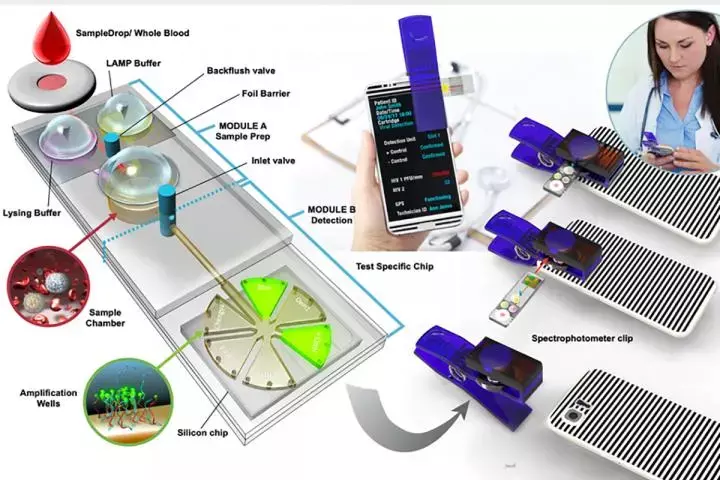- Home
- Medical news & Guidelines
- Anesthesiology
- Cardiology and CTVS
- Critical Care
- Dentistry
- Dermatology
- Diabetes and Endocrinology
- ENT
- Gastroenterology
- Medicine
- Nephrology
- Neurology
- Obstretics-Gynaecology
- Oncology
- Ophthalmology
- Orthopaedics
- Pediatrics-Neonatology
- Psychiatry
- Pulmonology
- Radiology
- Surgery
- Urology
- Laboratory Medicine
- Diet
- Nursing
- Paramedical
- Physiotherapy
- Health news
- Fact Check
- Bone Health Fact Check
- Brain Health Fact Check
- Cancer Related Fact Check
- Child Care Fact Check
- Dental and oral health fact check
- Diabetes and metabolic health fact check
- Diet and Nutrition Fact Check
- Eye and ENT Care Fact Check
- Fitness fact check
- Gut health fact check
- Heart health fact check
- Kidney health fact check
- Medical education fact check
- Men's health fact check
- Respiratory fact check
- Skin and hair care fact check
- Vaccine and Immunization fact check
- Women's health fact check
- AYUSH
- State News
- Andaman and Nicobar Islands
- Andhra Pradesh
- Arunachal Pradesh
- Assam
- Bihar
- Chandigarh
- Chattisgarh
- Dadra and Nagar Haveli
- Daman and Diu
- Delhi
- Goa
- Gujarat
- Haryana
- Himachal Pradesh
- Jammu & Kashmir
- Jharkhand
- Karnataka
- Kerala
- Ladakh
- Lakshadweep
- Madhya Pradesh
- Maharashtra
- Manipur
- Meghalaya
- Mizoram
- Nagaland
- Odisha
- Puducherry
- Punjab
- Rajasthan
- Sikkim
- Tamil Nadu
- Telangana
- Tripura
- Uttar Pradesh
- Uttrakhand
- West Bengal
- Medical Education
- Industry
New smartphone based portable test may detect Covid 19 in 30 minutes
 CAPTION A schematic drawing of the new device system. CREDIT Graphic courtesy Brian Cunningham
CAPTION A schematic drawing of the new device system. CREDIT Graphic courtesy Brian CunninghamCHAMPAIGN, Ill. -- Tests for the novel coronavirus can take days to detect the virus from nasal swabs with RT PCR method. There is an urgent need to devise tests that give results rapidly instead of labor- and time-intensive laboratory preparation and analysis techniques.
Researchers have demonstrated an inexpensive yet sensitive smartphone-based testing device for viral and bacterial pathogens that takes about 30 minutes to complete. The roughly $50 smartphone accessory could reduce the pressure on testing laboratories during a pandemic such as COVID-19.
The results of the new multi-institutional study have been reported in the journal Lab on a Chip.
"The challenges associated with rapid pathogen testing contribute to a lot of uncertainty regarding which individuals are quarantined and a whole host of other health and economic issues," Cunningham said.
The study began with the goal of detecting a panel of viral and bacterial pathogens in horses, including those that cause severe respiratory illnesses similar to those presented in COVID-19, the researchers said.
"Horse pathogens can lead to devastating diseases in animal populations, of course, but one reason we work with them has to do with safety. The horse pathogens in our study are harmless to humans," Cunningham said.
The new testing device is comprised of a small cartridge containing testing reagents and a port to insert a nasal extract or blood sample, the researchers said. The whole unit clips to a smartphone.
Inside the cartridge, the reagents break open a pathogen's outer shell to gain access to its RNA. A primer molecule then amplifies the genetic material into many millions of copies in about 10 or 15 minutes, the researchers said. A fluorescent dye stains the copies and glows green when illuminated by blue LED light, which is then detected by the smartphone's camera.
"This test can be performed rapidly on passengers before getting on a flight, on people going to a theme park or before events like a conference or concert," Cunningham said. "Cloud computing via a smartphone application could allow a negative test result to be registered with event organizers or as part of a boarding pass for a flight. Or, a person in quarantine could give themselves daily tests, register the results with a doctor, and then know when it's safe to come out and rejoin society."
There are a few preparatory steps currently performed outside of the device, and the team is working on a cartridge that has all of the reagents needed to be a fully integrated system. Other researchers at the U. of I. are using the novel coronavirus genome to create a mobile test for COVID-19, and making an easily manufactured cartridge that Cunningham said would improve testing efforts.
For further reference log on to:
http://dx.doi.org/10.1039/D0LC00304B
Dr Kamal Kant Kohli-MBBS, DTCD- a chest specialist with more than 30 years of practice and a flair for writing clinical articles, Dr Kamal Kant Kohli joined Medical Dialogues as a Chief Editor of Medical News. Besides writing articles, as an editor, he proofreads and verifies all the medical content published on Medical Dialogues including those coming from journals, studies,medical conferences,guidelines etc. Email: drkohli@medicaldialogues.in. Contact no. 011-43720751


